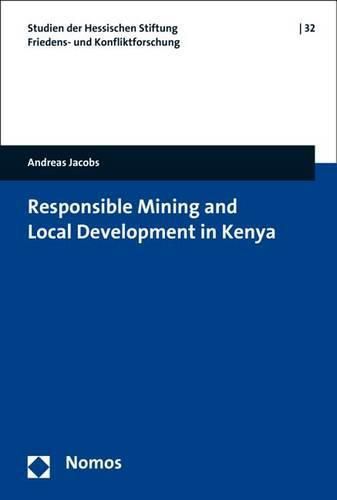Readings Newsletter
Become a Readings Member to make your shopping experience even easier.
Sign in or sign up for free!
You’re not far away from qualifying for FREE standard shipping within Australia
You’ve qualified for FREE standard shipping within Australia
The cart is loading…






This book contributes to the empirical closure of the research gap concerning the local impacts of the new global wave of corporate social responsibility (CSR) in mining. Focusing on corporate and local narratives from Kenya, the book evaluates the credibility of claims that the engagement of responsible mining companies in African developing countries entails overwhelmingly positive changes in the lives of poor and marginalized people. The book’s analytical framework derives from a critical conceptualization of the local level-focused development promises propagated by the global advocates of responsible mining projects. Its constructivist-comparative methodology is based on a critical review of established impact assessment practices used in mining. The book’s principal finding is that, even though local people notice and appreciate managerial shifts towards increased social responsibility, the development claims made by company managements are non-credible because local people do not believe that responsible mining-induced development has ever occurred in their lives. The book closes with an explanation of how its findings may enrich scholarly debates and political discourses about the curses and blessings of industrial resource extraction.
$9.00 standard shipping within Australia
FREE standard shipping within Australia for orders over $100.00
Express & International shipping calculated at checkout
This book contributes to the empirical closure of the research gap concerning the local impacts of the new global wave of corporate social responsibility (CSR) in mining. Focusing on corporate and local narratives from Kenya, the book evaluates the credibility of claims that the engagement of responsible mining companies in African developing countries entails overwhelmingly positive changes in the lives of poor and marginalized people. The book’s analytical framework derives from a critical conceptualization of the local level-focused development promises propagated by the global advocates of responsible mining projects. Its constructivist-comparative methodology is based on a critical review of established impact assessment practices used in mining. The book’s principal finding is that, even though local people notice and appreciate managerial shifts towards increased social responsibility, the development claims made by company managements are non-credible because local people do not believe that responsible mining-induced development has ever occurred in their lives. The book closes with an explanation of how its findings may enrich scholarly debates and political discourses about the curses and blessings of industrial resource extraction.